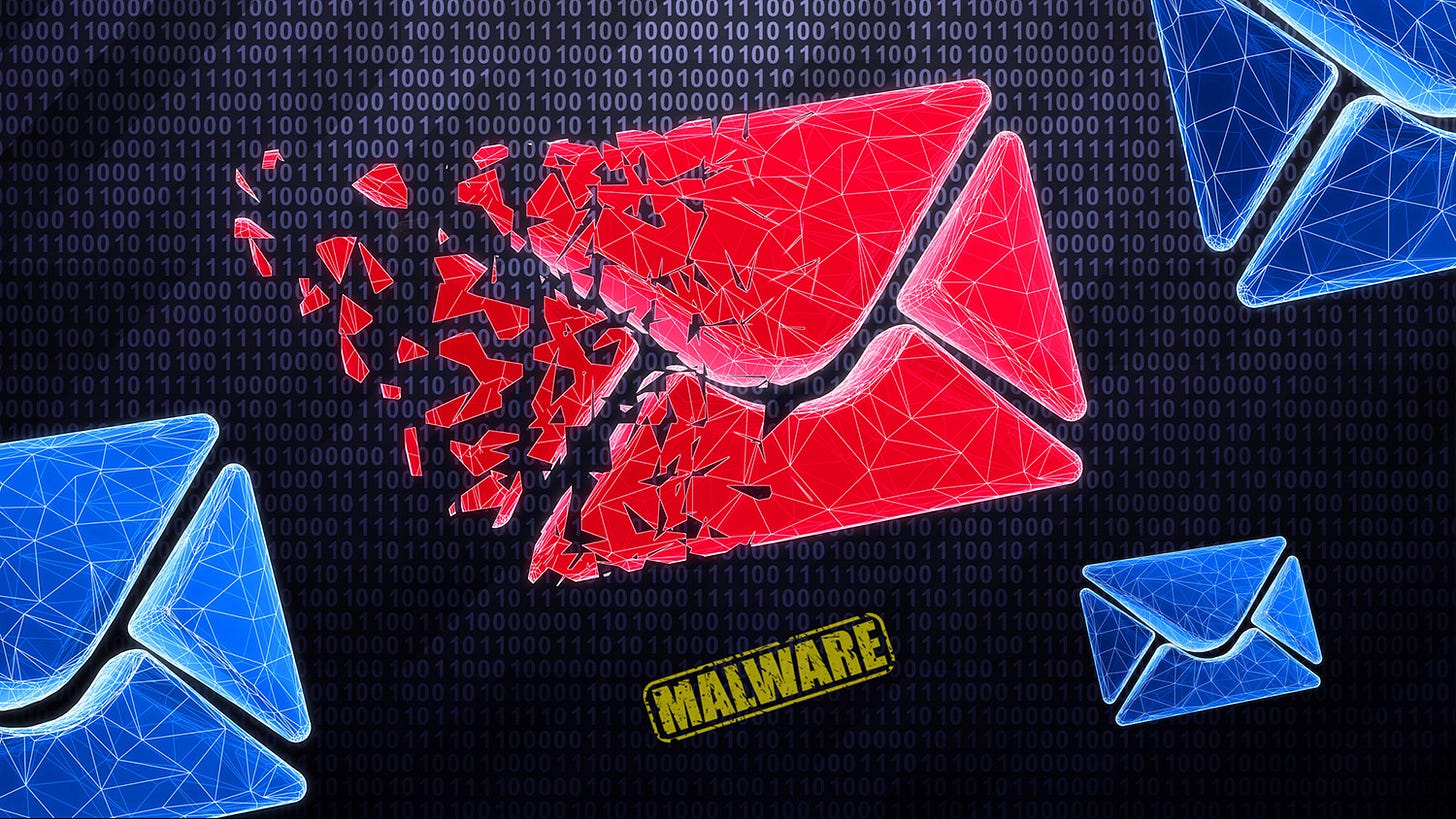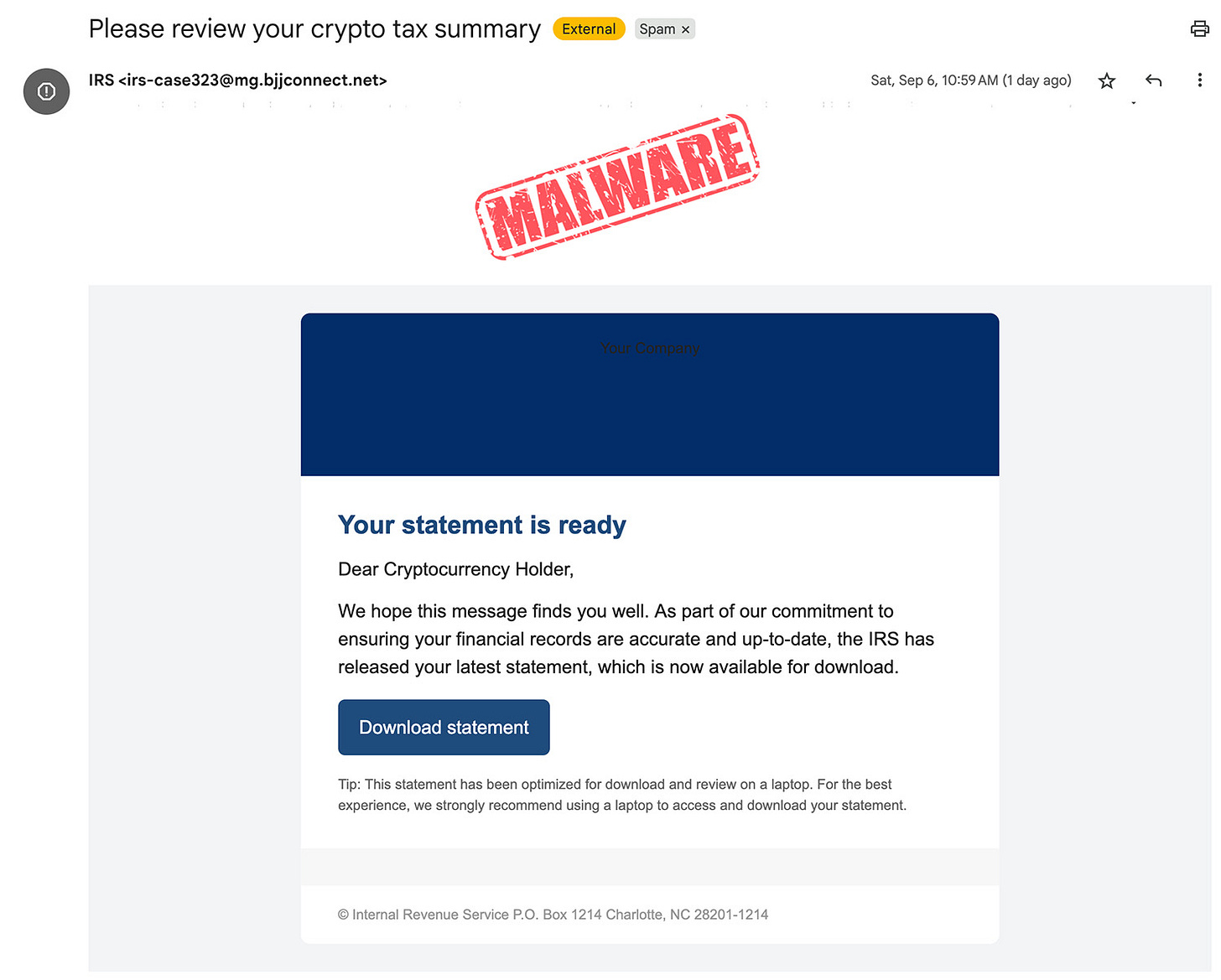Scammers Use Fake IRS Statements to Infect Devices
Bogus IRS “Crypto Statement” Email
tl;dr
A scam email posing as the IRS claims to provide a downloadable “cryptocurrency statement”. Clicking the link installs malware designed to steal information or compromise your device. The IRS will not send you unsolicited emails that urge you to download financial statements. If you receive such a message, delete it immediately.
A new scam email is circulating that falsely claims to be from the U.S. Internal Revenue Service (IRS). The message targets cryptocurrency users and attempts to trick them into downloading a file that contains malware.
How the Scam Works
The email arrives with the subject line “Your statement is ready” and greets the recipient as a “Cryptocurrency Holder.” It then claims that the IRS has prepared a new financial statement, which can be accessed via a provided download link.
Variants of the emails may omit references to cryptocurrency and address the recipient as “Taxpayer” or “Account Holder”.
The scammers even add a “tip” suggesting that the statement is best reviewed on a laptop. Some versions add the following notice to the top of the email:
For security reasons, this statement must be opened on a Windows laptop or desktop computer. Opening on mobile devices, Mac, or tablet is not supported and may result in errors.
These notices are designed to increase the likelihood that recipients will infect their devices. The malware is likely intended to run on Windows-based computers.
If you click the link, a file is automatically downloaded. Opening this file will install malicious software on your computer. Once installed, malware can steal personal information, harvest login credentials, allow remote access to your device, or even lock your computer’s files and demand that you pay a “ransom” to regain access.
Why It’s a Scam
The IRS does not initiate contact with taxpayers by email to provide financial statements, nor does it ever send unsolicited links or attachments. Any message claiming otherwise should be treated as fraudulent.
The IRS website notes:
We will never initiate contact with you by email or require you to communicate with us by email.
By pretending to be a trusted government agency, the scammers increase the chance that recipients will lower their guard and click.
How to Stay Safe
Do not click links in unsolicited messages claiming to be from the IRS or other government agencies.
Never download or open unexpected files. Doing so can infect your computer with malware.
Access official services directly by entering the web address into your browser, rather than following a link in an email.
Keep your devices protected with updated security software and regular backups.
Conclusion
This fake IRS “cryptocurrency statement” is a classic malware delivery attempt disguised as an official notice. If you receive such a message, delete it immediately.
Staying cautious about unexpected emails is one of the best ways to protect yourself from malware and phishing attacks.




So many red flags in that email sample!